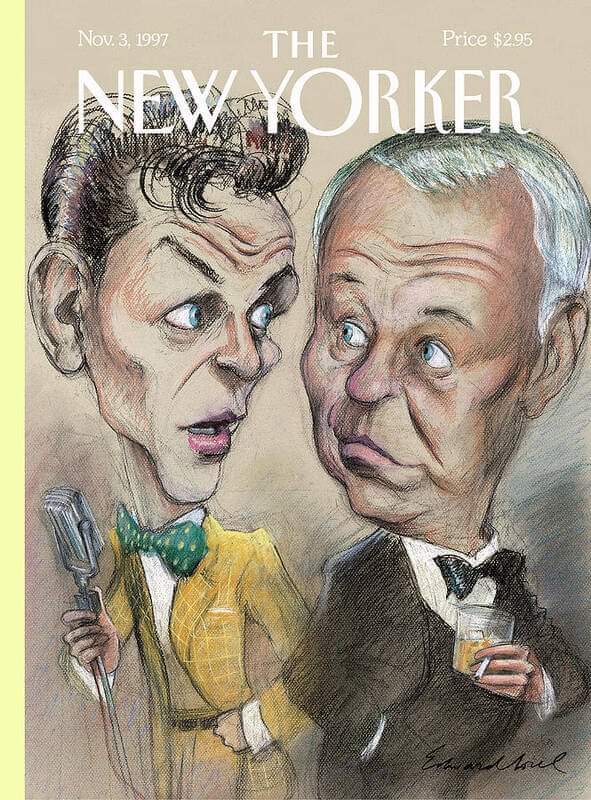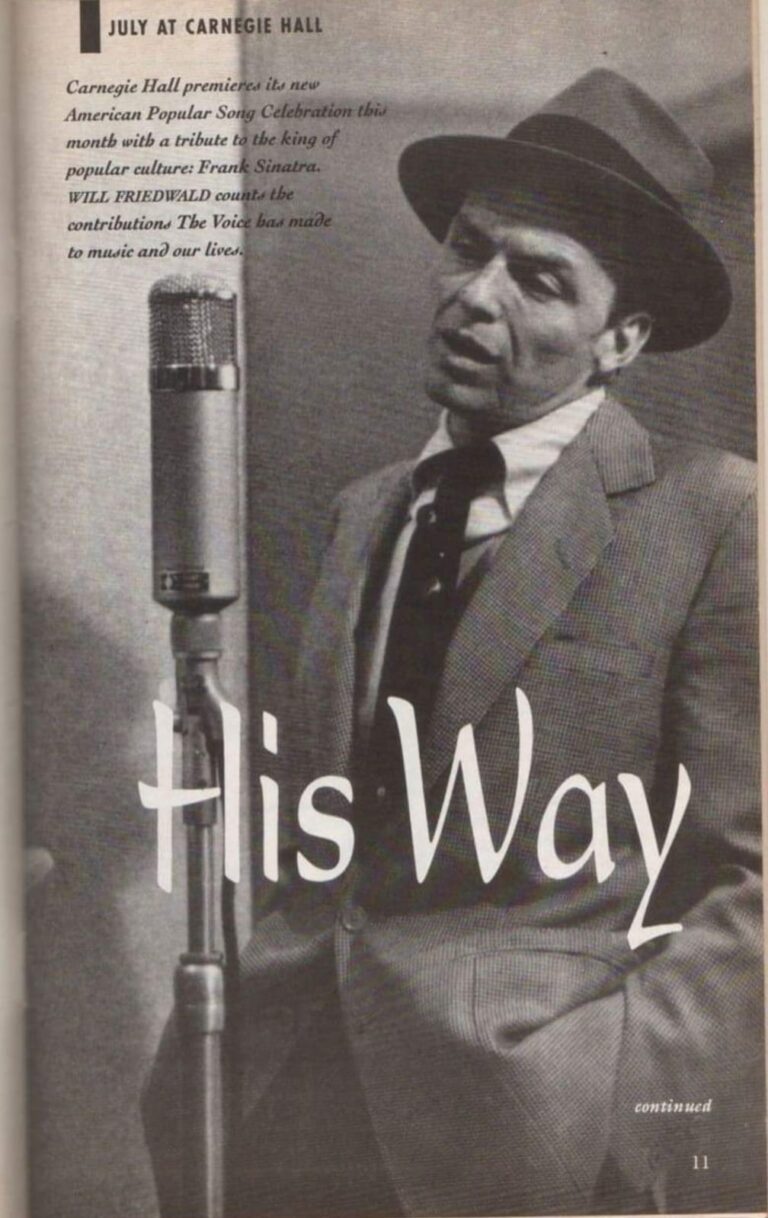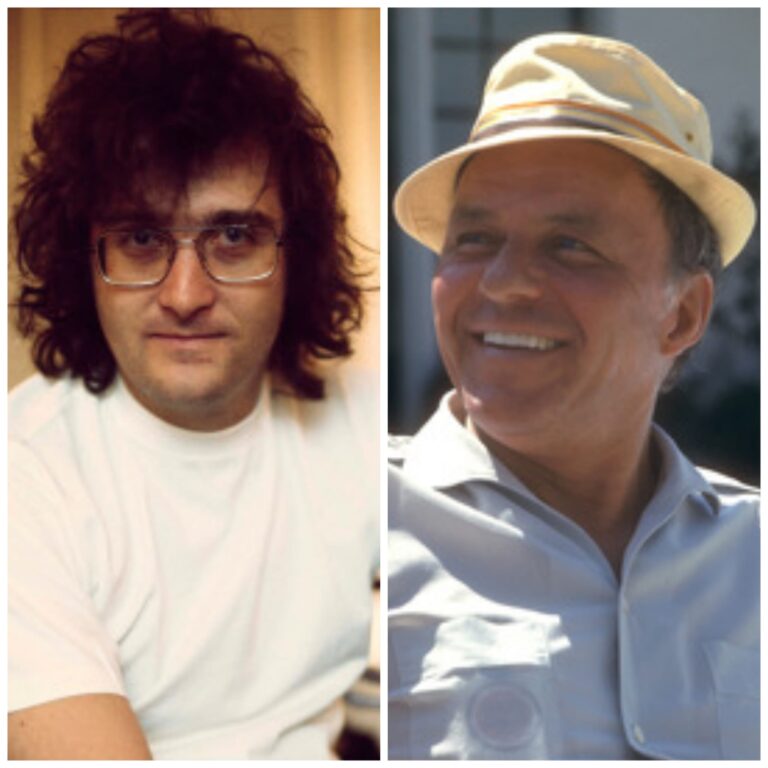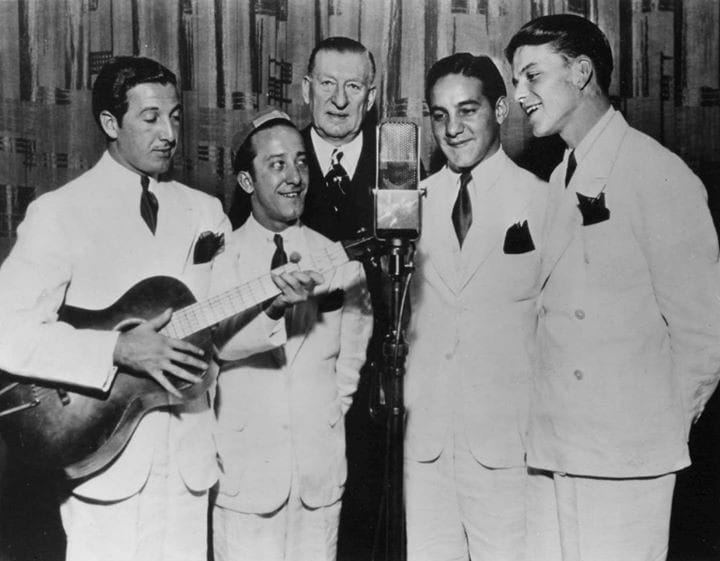
THE LAST YEARS OF FRANK SINATRA
By Mahnuel Muñoz
EPISODE 16
“What does Frank Sinatra have that no one else can match? He could swing, break hearts and misbehave, and his voice became an instrument that continued to reinvent American music.”
(“The Sinatra Song”, John Lahr, The New Yorker, October 1997.)
The year 1997 begins with the publication of a new anthology from the RCA label titled “Frank Sinatra And The Tommy Dorsey Orchestra: Love Songs”, a wonderful journey to the days when the world fell in love with Frankie for the first time, when he was one of the vocalists of the “Sentimental Knight of Swing” orchestra.
It is not difficult to understand the enthusiasm of those first admirers; In such early phases of his artistic apprenticeship many of the qualities that flourished in all his splendor were already present when he established himself as a solo star a couple of years later; his characteristic phrasing, the dynamic and honest interpretation and the spellbinding connection with the audience.
Listening again in 1997 to songs like “I’ll Never Smile Again”, “This Love Of Mine”, “Violets For Yoor Furs” or “The Song Is You” with Sinatra’s voice in its snowiest phase is a rare pleasure. simple in the middle of the complex and varied music scene in which The Prodigy, Daft Punk and Spice Girls coexist.
In January, Frank is diagnosed with urethral cancer, which can be operated on immediately and without problems, allowing him to return home the next day. The surgeon cauterizes the urethra and inserts a catheter to keep the urinary canal open.
Once at home, Frank tears out the tube, causing him to suffer fluid retention that leads to a new and more serious heart attack. An ambulance with sirens and lights off and escorted by Beverly Hills police takes the singer back to Cedars-Sinai Hospital.
From his room overlooking Beverly Boulevard he can see that on the roof of a nearby store someone has painted a huge yellow smiling face with the phrase “Get Well Soon.” But Frank is not in the mood, he hates being in the hospital and even fights with his daughters and his wife when they are in the room.
However, there are happy moments when he watches some old movies with his daughters, including some of his own titles. When they are watching “Guys And Dolls” (“Ellos y Ellas” in Spain), Frank laughs and comments, “I still don’t know how to sing,” referring to his co-star Marlon Brando.
In February he is too ill to go to the annual charity golf tournament named after him. Barbara has to attend, so to keep an eye on her husband she orders cameras set up in the living room and bedroom, the limits to which the artist’s world has been reduced.
Barbara makes sure that she receives the best medical care, and for a time she does not leave the house, although she is not willing to lose her independence; She soon began going out frequently at night again, leaving Frank at home, much to his displeasure. In her isolation, there are days when Frank doesn’t even know if his wife is home.
Some nights Frank wants to go out to dinner with her, but Barbara doesn’t want photographers to be able to capture an image of her in her current state, much more aged and deteriorated and increasingly distant from the memory that people have of Sinatra.
In his usual arguments with her, Frank suffers fits of anger, very dangerous for someone in her condition.
At this time Frank Junior almost never visited him; Although it is true that he has to attend to a busy performance schedule, the distance between them after so many years of working together on stage is disconcerting and very revealing.
His daughters, on the other hand, see him frequently, but the tension between them and Barbara becomes more and more impenetrable. In conversations with Tina, Frank bitterly regrets having failed as a father: “I wasn’t present enough, especially for you.”
Frank’s deteriorating eyesight prevents him from reading the newspapers that once pleased him so much, and his damaged hearing forces him to turn up the volume of the television to intolerable limits. But for what must be seen and read, silence and darkness are better allies: the insatiable tabloid press disrespectfully provides content with the Sinatra family disputes over the management of the estate and the rights to the image and name of the artist, and when the cackling stops, the parade of obituaries of great stars of film and music who were good friends of Frank begins: Gene Kelly, George Burns, Ella Fitzgerald, Juliet Prowse, James Stewart, Robert Mitchum, Red Skelton, Fred Zinneman…
Fortunately, the faithful Tony Oppedisano, always present, is in charge of calming and distracting Frank, joking, drinking non-alcoholic beer, playing old television shows and, above all, music.
Music has always been Frank’s refuge, and now that he cannot create it, he loses himself in listening to and enjoying it, especially opera and classical music until dawn or sleep overcomes him. Other times, however, he sinks into the silence he had been fleeing from all his life.
And record labels properly honor the most important thing in Sinatra’s life: his musical legacy. In April the Blue Note jazz label entertains fans with a splendid concert recorded in 1959 during Frank’s tour in Australia with vibraphonist Red Norvo’s quintet. It is considered one of the most exciting performances ever recorded by him, exhibiting irrepressible freedom and energy. Also the labels that had recorded Sinatra reissue classic material among which it is worth highlighting the Columbia double CD “Portrait Of Sinatra”, with emblematic pieces from his early period, and its counterpart on Reprise, titled “My Way: The Best Of Frank Sinatra.”
In May, the United States Congress awards him the Congressional Gold Medal, proposed in 1995 by Democratic Congressman José Enrique Serrano. It is the highest honor that a civilian can obtain in the country, previously granted to figures of the magnitude of George Washington, Ulysses S. Grant, Winston Churchill, the Gershwin brothers, John Wayne and Bob Hope. For Frank it is undoubtedly one of the happiest moments of his life.
After decades of stark and humiliating criticism by the press, fruitless investigations by the FBI, the United States government publicly recognizes that Frank Sinatra is an honorable man.
However, Frank reacts with modesty: “I don’t know what all the fuss is about,” he comments. “I’m just a singer who tried to do the best he could.” The medal takes its place in the display case that preserves many other awards received over the years. He never brags about her, but sometimes he stares blankly at her, as if the skinny kid from Hoboken couldn’t believe she was really his.
The month of December brings, as always, Frank’s birthday and Christmas. Both parties are celebrated in the traditional Sinatra way, with guests, although in a more modest and quiet way.
On his birthday, Frank receives a phone call and on the other end of the line, violinist Isaac Stern plays “Happy Birthday.” Christmas Eve 1997 is the last time Frank and Nancy, his first wife, see each other.
If you want to visit more articles about the life of Frank Sinatra enter the following Sinatra Radio 24h link: https://sinatraradio24h.com/category/articles/
We remind you that you can also listen to Sinatra Radio 24 hours on your mobile phone by downloading our free applications for Android in the Play Store https://play.google.com/store/apps/details?id=sinatra.radio24h for iPhone in the Apple Store https://apps.apple.com/app/sinatra-radio-24h/id6599859344








